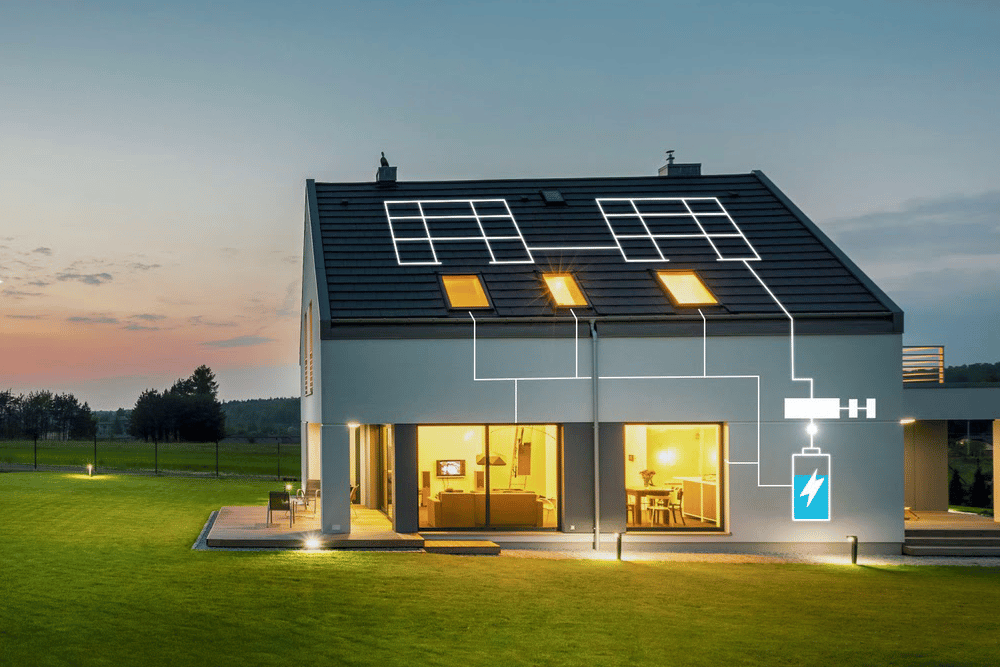Harness the Power: How House Battery Storage is Revolutionizing Home Energy Efficiency
In recent years, there has been a growing trend towards sustainable living and reducing our carbon footprint. One of the key factors in achieving this is through improving home energy efficiency. House battery storage is a revolutionary technology that is changing the way we power our homes. By storing excess energy generated from renewable sources like solar panels, house battery storage systems allow homeowners to have a reliable and sustainable energy source. Let's delve deeper into how house battery storage is revolutionizing home energy efficiency.
The Basics of House Battery Storage
What is House Battery Storage?
House battery storage (also known as ‘batterijopslag voor het huis’ in the Dutch Language) refers to the use of batteries to store excess energy generated by solar panels or other renewable sources. Instead of sending this excess energy back to the grid, homeowners can store it in batteries for later use.
How Does it Work?
When solar panels produce more energy than the home needs, the excess energy is stored in the batteries. This stored energy can then be used when the solar panels are not generating electricity, such as at night or during cloudy days.
Benefits of House Battery Storage
- Reduce reliance on the grid: House battery storage allows homeowners to become less dependent on the grid for their energy needs.
- Save money: By using stored energy during peak hours when electricity rates are higher, homeowners can save money on their energy bills.
- Backup power: In case of a power outage, house battery storage systems can provide backup power to keep essential appliances running.
- Environmental impact: House battery storage systems help reduce the reliance on fossil fuels, leading to a lower carbon footprint.
Revolutionizing Home Energy Efficiency
Increased Self-Sufficiency
House battery storage systems give homeowners the ability to generate and store their own energy, making them less reliant on the grid. This increased self-sufficiency not only reduces energy costs but also provides a sense of security during power outages.
Optimizing Energy Usage
With house battery storage, homeowners can optimize their energy usage by storing excess energy for later use. This allows them to make the most of their renewable energy sources and reduce wastage.
Supporting Renewable Energy
House battery storage systems play a crucial role in supporting the growth of renewable energy sources like solar power. By storing excess energy, homeowners can make better use of renewable energy and contribute to a more sustainable future.
Choosing the Right House Battery Storage System
Factors to Consider
- Capacity: Determine the amount of storage capacity you need based on your energy consumption and usage patterns.
- Compatibility: Ensure that the house battery storage system is compatible with your existing renewable energy setup.
- Cost: Consider the upfront costs of the system as well as the long-term savings it can provide.
- Warranty: Look for a system with a reliable warranty to ensure long-term performance and support.
Popular House Battery Storage Systems
- Tesla Powerwall: A popular choice known for its sleek design and high performance.
- LG Chem RESU: Offers a range of options to suit different energy storage needs.
- Sonnen Eco: Known for its smart energy management features and long-lasting performance.
Conclusion
House battery storage is a game-changer in the quest for sustainable living and energy efficiency. By harnessing the power of batteries to store excess energy, homeowners can reduce their reliance on the grid, save money, and support renewable energy sources. As technology continues to advance, house battery storage systems are becoming more affordable and accessible to homeowners looking to make the switch to sustainable energy solutions. Embracing house battery storage is not just a step towards energy efficiency but a leap towards a greener future.
